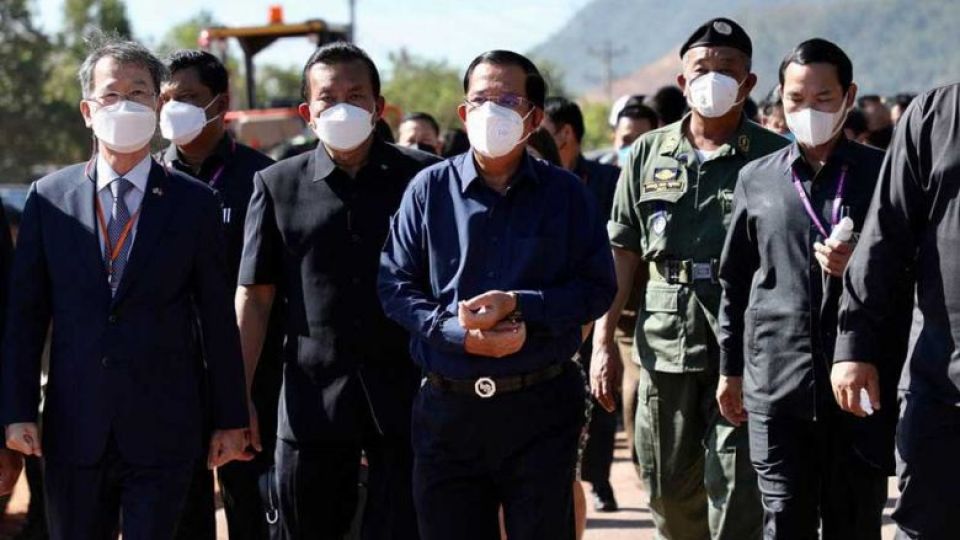January 6, 2022
The Cambodia-Korea Free Trade Agreement (CKFTA) is set to enter into force 60 days after the Kingdom’s Ministry of Commerce and South Korean counterpart have notified each other that their respective internal procedures have been completed, as affirmed by ministry spokesman Pen Sovicheat.
Minister of Commerce Pan Sorasak, Korean ambassador Park Heung-kyeong and other observers have voiced enthusiasm about future bilateral trade prospects offered by the deal, above all a substantial boost in export volumes.
Bilateral trade between Cambodia and South Korea reached $869.735 million in the first 11 months of 2021, an 8.805 per cent surge from $799.354 million in the same period last year, Korea International Trade Association (Kita) data indicate.
On the other hand, the latest ministry statistics show that bilateral trade between the two countries stood at $638 million for the first 10 months of 2021, climbing 10 per cent year-on-year from $578 million.
The Korean ambassador on January 3 attended a groundbreaking ceremony in Koh Kong province for new constructions and upgrades to National Road 48, a project backed by a concessional loan from Seoul.
Park highlighted that South Korea-Cambodia ties have improved significantly, and noted that bilateral trade reached $1.03 billion in 2019, which he said was a 19-fold jump from $54 million in 1997, the year the two countries re-established diplomatic relations.
“Korean capital investment in Cambodia from 2004-2019 clocked in at $4.4 billion, second only to China. And in October 2021, Korea and Cambodia signed a finalised free trade agreement [FTA], in the expectation of boosting trade between the two countries someday.”
On December 30, the commerce minister defended three major commerce-related draft laws at separate meetings with the 9th Committee of the Senate.
Initiated by the ministry, one of these draft bills authorises the ratification of the CKFTA, while the other two respectively amend the Law on Commercial Enterprises and Law on Commercial Regulations and the Commercial Register.
Sorasak contended that the CKFTA would be a main driving force for bilateral trade and investment flows, mutual economic benefits, welfare development and business ties.
He stressed that his ministry has bent over backwards to establish bilateral FTAs with key trading partners and enter into other market-related negotiations.
“The Ministry of Commerce has made great efforts to develop laws and legal standards aimed at improving the business environment and diversifying markets, to boost exports by taking full advantage of trade agreements,” he said.
The committee unanimously approved (9-0) the three draft laws without any further amendments, which are to be submitted to an upcoming plenary session of the Senate for review.
Cambodia Chamber of Commerce vice-president Lim Heng said that coupled with the favourable conditions provided by the new investment law, the CKFTA would buoy economic growth in the Kingdom.
Noting that the trade deal would grant tariff preferences on a variety of Cambodian exports to South Korea, Heng argued that investing in the Kingdom would be “no different” than doing the same elsewhere in ASEAN – home to more than 678.5 million people – a notion he said would be key to reel in Korean and other international investors.
But there are still some challenges, he said, listing five categories.
Four of these are agricultural land and irrigation issues; connections between agricultural and industrial areas; high electricity rates compared to neighbouring countries; and ineffective control of prohibited and restricted imports.
The fifth, limited law enforcement resources, undermines the effectiveness of contract farming, and disinclines investors from entering the market, according to Heng.
Royal Academy of Cambodia economics researcher Ky Sereyvath said the CKFTA would pave the way for South Korea to gain on the US, China and European countries with respect to purchases of Cambodian garments.
He noted that the deal fits well into the Kingdom’s diversification agenda, providing preferential treatment for a wide range of items – such as electronics and their components, car parts and apparel – whereas the FTA with China focuses more heavily on agricultural goods.


